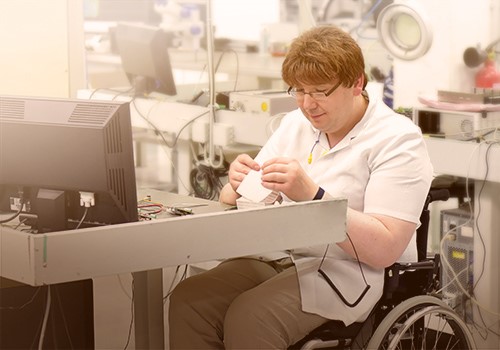Getting approved for Social Security Disability Insurance (SSDI) can be challenging. According to the Social Security Administration (SSA), between 60 and 70 percent of claims are initially denied. While some denials are based on medical ineligibility – such as failing to prove that a condition is sufficiently disabling or likely to prevent work for a year or longer – approximately 45 percent are technical or non-medical denials.
Did you apply for SSDI and receive a technical denial? Here’s what you should know about non-medical SSDI denials, including the circumstances under which you can appeal and how Keefe Disability Law’s seasoned Boston attorneys can help you navigate the Social Security system to get the benefits you deserve.
Understanding Technical Denials
SSDI has strict eligibility requirements. If you applied for SSDI and received a technical denial, the disability examiner evaluating your claim took a cursory look at your application and determined that you didn’t meet the basic, non-medical criteria for benefits. Technical denials have nothing to do with the severity of your condition or the quality of the evidence you provided. If you don’t meet SSDI’s non-medical requirements, the SSA can deny your claim without even reviewing the medical evidence.
You might receive a technical denial if you:
Earn too much. Applying for SSDI while still working? Though working won’t disqualify you, earning more than the SSA’s substantial gainful activity (SGA) limit will. In 2022, the SGA limit was $1,350 per month for most applicants and $2,260 monthly for statutorily blind individuals.
Don’t have enough work credits. You earn work credits by working in jobs that pay into Social Security. Applicants generally need 40 credits to qualify for SSDI; however, younger workers may qualify with fewer credits.
Haven’t worked recently enough. You aren’t insured under SSDI forever; coverage eventually lapses when you stop working and stop paying into the system (via FICA taxes). To qualify for SSDI, applicants typically need to have worked five out of the last ten years.
When You Can Appeal a Technical Denial
Because technical, non-medical denials are based on basic eligibility requirements, most can’t be appealed. However, there are some exceptions to this rule. For example, you may be able to successfully appeal a technical SSDI denial if the SSA made a mistake when calculating your earnings or work credits, your application contained errors, or you forgot to include important documents.
Received a technical denial, but aren’t sure if you can appeal? We can help. Keep reading to find out how to schedule a free initial consultation with a member of our knowledgeable and experienced legal team.
How a Disability Lawyer Can Help You Appeal an SSDI Technical Denial
The SSDI appeals process can be confusing, frustrating, and rife with strict deadlines and potential pitfalls. Don’t go it alone. Let our caring and capable disability attorneys handle all the legal heavy lifting while you focus on your health and ongoing medical treatment. Here are a few examples of how we can assist you:
Review and explain your denial letter
Determine whether you can appeal
Discuss your rights and options
Review your original application
Correct errors in the application paperwork
Gather additional earnings or work credit evidence to submit on appeal
File to appeal your technical SSDI denial
Ensure compliance with procedural rules and deadlines
Improve your chances for a successful outcome
Since 1994, Keefe Disability Law has helped thousands of disabled clients obtain much-needed Social Security disability benefits. We may be able to do the same for you. Talk to us about your SSDI claim.
Schedule a Free Consultation
Complete our online contact form or call (508) 283-5500 to schedule an appointment for a complimentary initial consultation. Don’t wait; after receiving a denial letter, you have just 60 days to initiate an appeal.
For more information on SSDI appeals, browse our legal blog or request a free download of our eBook, Unlocking the Mystery: The Essential Guide for Navigating the Social Security Disability Claims Process.
























